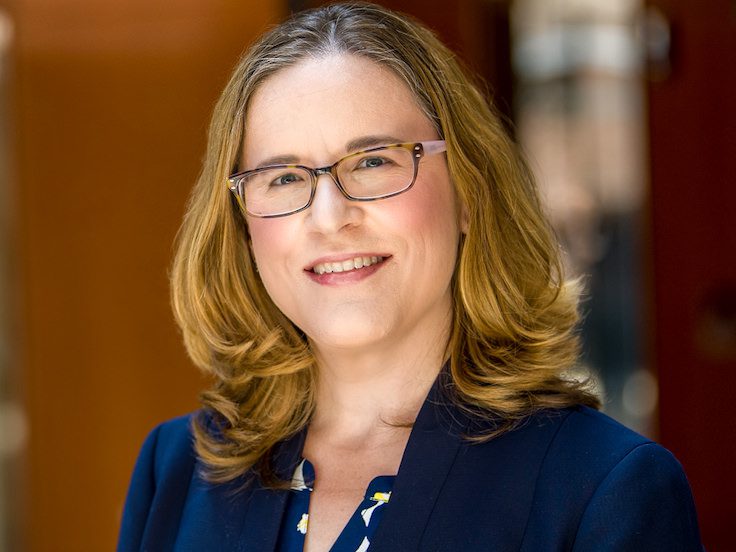Parking Studies and Design
Parking is an instrumental and inevitable part of most transportation and real estate projects. As the world changes from a focus on single-occupancy vehicles to mixed-use, urban, and transit-oriented developments, getting parking right is even more crucial to the success of developments, land use, and communities.
On this page, learn more about:
- Parking Analysis: A Crucial Aspect of Development and Mission Delivery
- Parking Reduction Studies
- Shared Parking
- Parking Tabulations in Fairfax County, Virginia
Wells + Associates’ traffic engineers and transportation planners help analyze, design, and modernize parking facilities not simply because they are integral parts of the entire transportation ecosystem, but because they are crucial to creating better office, residential, commercial, educational, and healthcare experiences. We work on projects ranging from parking systems that are still a concept on paper to facilities that have outlived their usefulness and need modernization.
Our parking engineers work closely with our traffic design and street lighting teams to deliver optimal solutions for our clients.
Parking analysis and design involves key questions that we hear regularly from our clients, including:
- How do I know that I have the right number of spaces?
- How can I reduce the number of parking spaces in my development to save space and money?
- How do we create and encourage shared parking to optimize land use?
- What local regulations govern the number of parking spaces we are required to build?
- How can I use TDM solutions to solve parking challenges, such as integrating parking with pedestrian, bicycle, transit, and other transportation systems?
Real-World Case Studies:
In A Costly Real Estate Development Market, Don’t Overbuild Parking: Take Advantage of Parking Reductions for Your PropertyTired of the cost of building parking spaces for your proposed development? Every additional parking space impacts profitability and even the chances of a project being developed. Using real-world examples, this research paper illustrates how parking reductions can be achieved.
Parking Analysis: A Crucial Aspect of Development and Mission Delivery
Every parking facility is different and requires a carefully measured approach. We help design parking facilities considering local regulations and zoning, parking requirements, the goals of our client and project, and traffic patterns, volume, and access. Location is another important factor, be it rural, suburban, high-density, or center city core. Another consideration is the land use involved, such as commercial, office, residential, mixed use, industrial, and medical care.
The unique nature of every parking situation is a key reason why parking analyses are so important. For example, the proximity, mix, and density of land uses can significantly impact the amount of parking required to serve a project since it creates synergy among uses and can encourage patrons to visit multiple uses on a single trip.
Parking now involves so much more than some asphalt and two painted lines. For example, our transportation demand management team helps integrate bicycle facilities – including bike racks, repair facilities, and lockers – into existing parking systems. Such amenities are becoming standard practice in a society that increasingly values more transportation choices, more opportunities to lead a healthy lifestyle, and environmentally friendly infrastructure.
We also evaluate the need for uncommon parking spaces including:
- electric charging stations,
- HOV spaces,
- Carpool and vanpool spaces, and
- Valet parking.
Beyond these many issues, our parking professionals increasingly help clients understand and integrate cutting-edge parking systems such as:
- Smart Parking: systems that leverage technology in order to make the parking experience as fast and efficient as possible
- Future Design for a Driverless Future: parking facilities that enable autonomous vehicles (AVs) to park in denser groups with easy and efficient retrieval
- Mechanical Parking: also known as automated parking, helps minimize the area required to park and retrieve vehicles
- Functional Design: parking design that takes into account vehicle types and sizes, vehicle movement, the number of vehicles, building codes and zoning requirements, and the size and layout of the building
- Geometric Design: a focus on the physical dimensions and arrangements of a parking facility to improve site access, parking availability and optimization, and the reduction in pavement required
Hospital and Healthcare Parking
Hospital and medical office parking is complex. When it comes to healthcare-related transportation, parking design and the patient’s experience of parking is crucial to the delivery of good healthcare. A proper parking evaluation can lead to the identification (and resolution!) of numerous problems, such as too few parking spaces, poor layout and design, or an insufficient number and inappropriate location of handicapped parking spaces. Every parking facility is unique!
Parking Reduction Studies
We prepare parking reduction studies for a wide range of clients who develop, redevelop, or manage properties, which leads to a simple question: why is a parking reduction study needed? The answer can be complex.
Parking motor vehicles is a costly endeavor, both in development and construction costs and in operating expense. Land use also works best when parking facilities experience high utilization. Naturally, real estate developers seek to reduce the amount of parking in new projects. And, with the growth of transit-oriented and mixed-use properties, it makes sense to seek to reduce the number of parking spaces in new developments. With such variables in play, it pays in many ways to get your parking right.
Our transportation engineering and planning team helps developers and communities achieve their parking reduction goals by:
- making use of situations in which minimum parking requirements have been eliminated or reduced,
- encouraging use of parking management, including development of transit, walking, ride-hailing, and bicycling options,
- understanding zoning requirements to allow developers more freedom to determine adequate parking supply,
- encouraging the innovative use of parking reduction analyses on projects that feature transit-oriented and high-density developments, and
- preparing parking studies that use best practices and draw on the experience of our professionals to identify and support the right amount of parking to ensure a successful project for both the client and the community.
Shared Parking
We help developers and communities build more efficient parking systems through shared parking. Shared parking results in better utilization and makes the best use of parking resources for commuters, workers, residents, and owners.
The demand for parking is usually related to traffic patterns that operate on peak and off-peak schedules. Shared parking is a development strategy that encourages complementary demands to make use of available parking at different times of the day and week. Thus, residential, office, and commercial parking, for example, can exist in the same facility.
Our traffic engineers study traffic demand, parking use, and existing and planned land use to help developers and property owners develop ideal parking systems and create successful and sustainable high-density communities, including mixed-use and transit-oriented developments.
Parking Tabulations in Fairfax County, Virginia
Fairfax County has a process for when a use(s) change at a site results in a greater minimum parking requirement than currently approved. When this occurs, Fairfax County typically requires a Parking Tabulation Form to be submitted and approved prior to a use permit being issued. Wells + Associates has extensive experience working with both Fairfax County and Applicant(s) to complete Fairfax County’s Parking Tabulation Form with the required site and parking information.
Learn More About Our Parking Services
Jami L. Milanovich, P.E.
Principal | (202) 556-1113
jlmilanovich@wellsandassociates.com
A registered Professional Engineer, Jami has over two decades of experience creating innovative transportation solutions in the District of Columbia. Her work includes traffic impact studies, parking analyses, intersection improvement design, loading management plans, site access studies, and expert witness testimony.
Michael J. Workosky
President | (703) 676-3603
mjworkosky@wellsandassociates.com
Mike Workosky is a transportation executive with more than 25 years of experience across the United States in parking matters related to mixed use developments, town centers, shopping centers, and commercial, governmental, and academic properties.


